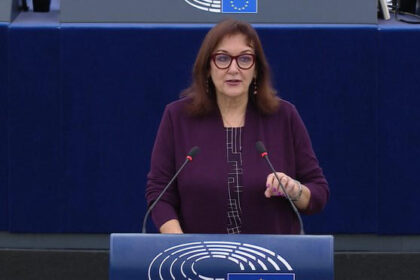**Ukraine’s Agricultural Future: Looking Beyond the EU**
The European Union’s decision to hike tariffs on Ukrainian agricultural imports is a wake-up call for Ukraine. For years, the EU has been the largest and most reliable market for Ukraine’s agricultural exports. However, with the new tariff hikes, Ukraine must rapidly diversify its markets and open up new non-EU trade partners to safeguard its economy and cement its role in global food security.
**The Breadbasket of Europe**
Ukraine has long been known as the breadbasket of Europe, rich in black soil and abundant in agricultural know-how. The country is a global powerhouse in food production, even under the shadow of war after Russia’s invasion. Agricultural products account for 60% of all exports, bringing in an estimated $25 billion in earnings over the past year.
**A New Trade Strategy**
Relying too heavily on any one market, especially one where political and economic headwinds can shift quickly, is risky. Ukraine must engage more vigorously with other countries in the Middle East, North Africa, and Asia, many of which face mounting food insecurity and would benefit greatly from stable Ukrainian supply lines.
**Initiatives like “Grain from Ukraine”**
Initiatives like the “Grain from Ukraine” program, providing for some of the poorest countries in Africa, have already shown the strategic value of Ukrainian agriculture. Citizens in Ethiopia, Sudan, Kenya, and many other countries have benefited. But these efforts must now expand from humanitarian aid to long-term commercial partnerships.
**What Ukraine Has to Offer**
Ukraine doesn’t just offer grain; it offers food security. As climate change and conflict disrupt food systems across the globe, Ukraine’s agricultural output can serve as a stabilizing force. The country’s ability to deliver large volumes of high-quality produce, often at competitive prices, makes it an attractive trade partner.
**The Investment Gap**
Seizing these opportunities requires capital. Much of Ukraine’s agricultural infrastructure, storage facilities, railways, and processing plants need investment. Some have been damaged, degraded, or underdeveloped for decades. Logistics routes remain vulnerable. Certification standards and packaging often need to be upgraded to meet the demands of new markets.
**Foreign Direct Investment**
Foreign direct investment (FDI) is critical to bridging this gap. Investors in agribusiness, logistics, technology, and processing can find long-term value in Ukraine’s vast agricultural potential. In return, their capital and expertise can help modernize the sector, unlock exports, and create jobs across the country.
**A Thriving Agricultural Sector**
A thriving agricultural sector boosts Ukraine’s GDP, stabilizes rural communities, and reduces dependence on international aid. It also enhances Ukraine’s geopolitical relevance by helping feed an increasingly hungry world. Ukraine must sow the seeds now for a diversified, resilient, and prosperous agricultural future. And the world should be eager to help it grow.
**Conclusion**
Ukraine’s farmers have proven their grit. Now they need new markets and the investment to reach them. From North Africa to Southeast Asia, the demand is there. The quality is in Ukraine. What’s needed is the bridge, built through trade policy, diplomacy, and serious foreign investment.











